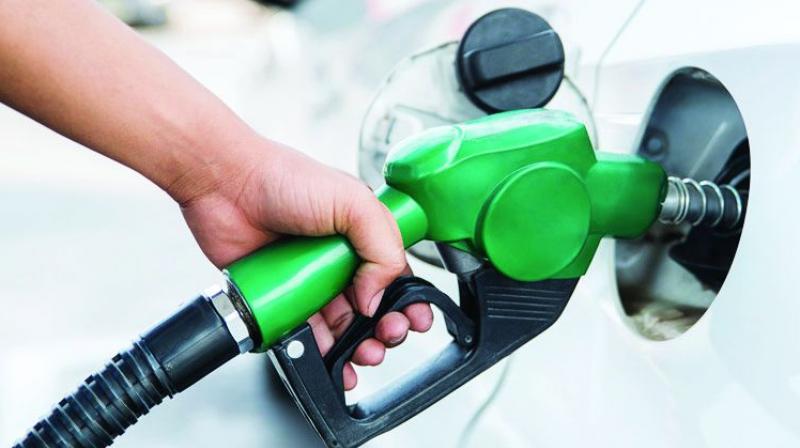Petrol price rise ends RBI's rate cut hopes

Mumbai: Rise in oil prices may lead to inflationary trends in the country, forcing the Reserve Bank of India (RBI) to hike rates by 0.25 per cent in the August policy review, foreign brokerages said on Monday.
The apex bank, however, may opt for a status quo in rates at the forthcoming review in June, they said.
“We now expect the RBI to embark on an earlier than expected rate hike cycle and expect the first hike in August of 0.25 per cent versus our earlier expectation of hikes to come in the first quarter of 2019,” Australian brokerage Macquarie said.
The brokerage attributed the call to a change in “evolving external stability conditions”, asser-ting that the underlying economic fundamentals are not weak. The note, however, did not elaborate on the external conditions.
It can be noted that the recent times have been dominated by a surge in oil prices, widening of the current account defi-cit and a heavy depreciation in the rupee.
Quoting its proprietary indices, Japanese brokerage Nomura also said that the RBI may opt for a rate hike of 0.25 per cent each in August and October reviews after leaving the rates uncha-nged at the June 6 review.
“In our base case (55 per cent probability), we expect the RBI to leave the policy rate unchanged, but change its stance from ‘neutral’ to ‘withdrawal of accommodation’ on June 6, followed by 0.25 per cent rate hike in each of August and October,” it said.
The brokerage said its policy signal index rose to 0.10 in May from 0.01 in April “implying a higher probability of tightening due to rising crude oil prices and higher core inflation.
It, however, said that at 0.1 per cent, the index is still in the no-change zone, but added that if the prices remain at the current levels, the threshold will be crossed.
Oil marketing companies hiked fuel prices for seven consecutive days till Sunday to record high, primarily on the jump in global crude prices. The Karnataka polls had also led to a deferment of the price hikes, according to reports.
The reports by Macquarie and Nomura come days after similar calls by its peers including HSBC, which expects two hikes, in August and October, respectively.
Even before the current spell of depreciation in the rupee and surge in oil prices, RBI deputy governor Viral Acharya had called for a change in stance of the policy at the April meeting of the rate-setting panel, according to minutes of monetary policy committee meeting.
According to an SBI report, rising crude oil prices may worsen the current account deficit (CAD) to 2.5 per cent of the GDP in the current financial year.
The CAD — difference between inflow and outflow of foreign exchange — is estimated at 1.9 per cent for 2017-18.
According to SBI Ecowrap, every $10/barrel increase in oil price results in additional import bill of $8 billion.
This in turn will decrease GDP by 0.16 per cent, increase fiscal deficit by 0.08 per cent, CAD by 0.27 per cent and inflation by 0.30 per cent, the research report said adding these are just model estimates and actuals could be much different.
“Crude prices are expected to impact imports. This will stretch the 2018-19 CAD to 2.5 per cent of GDP. The exports need further push so that the external metrics remain stable,” the report said. The SBI report further said for 2017-18, the exports grew at 9.78 per cent.

